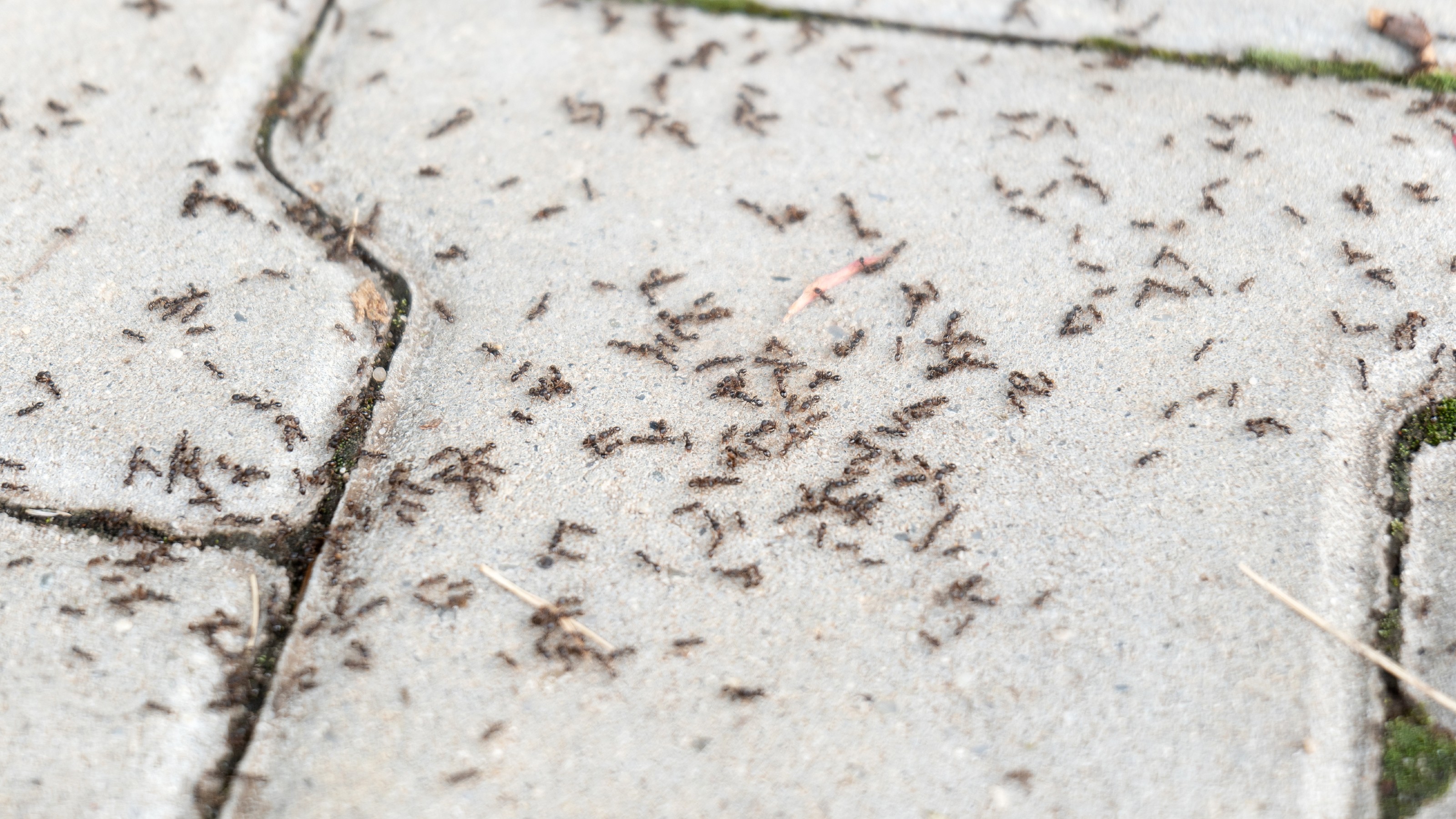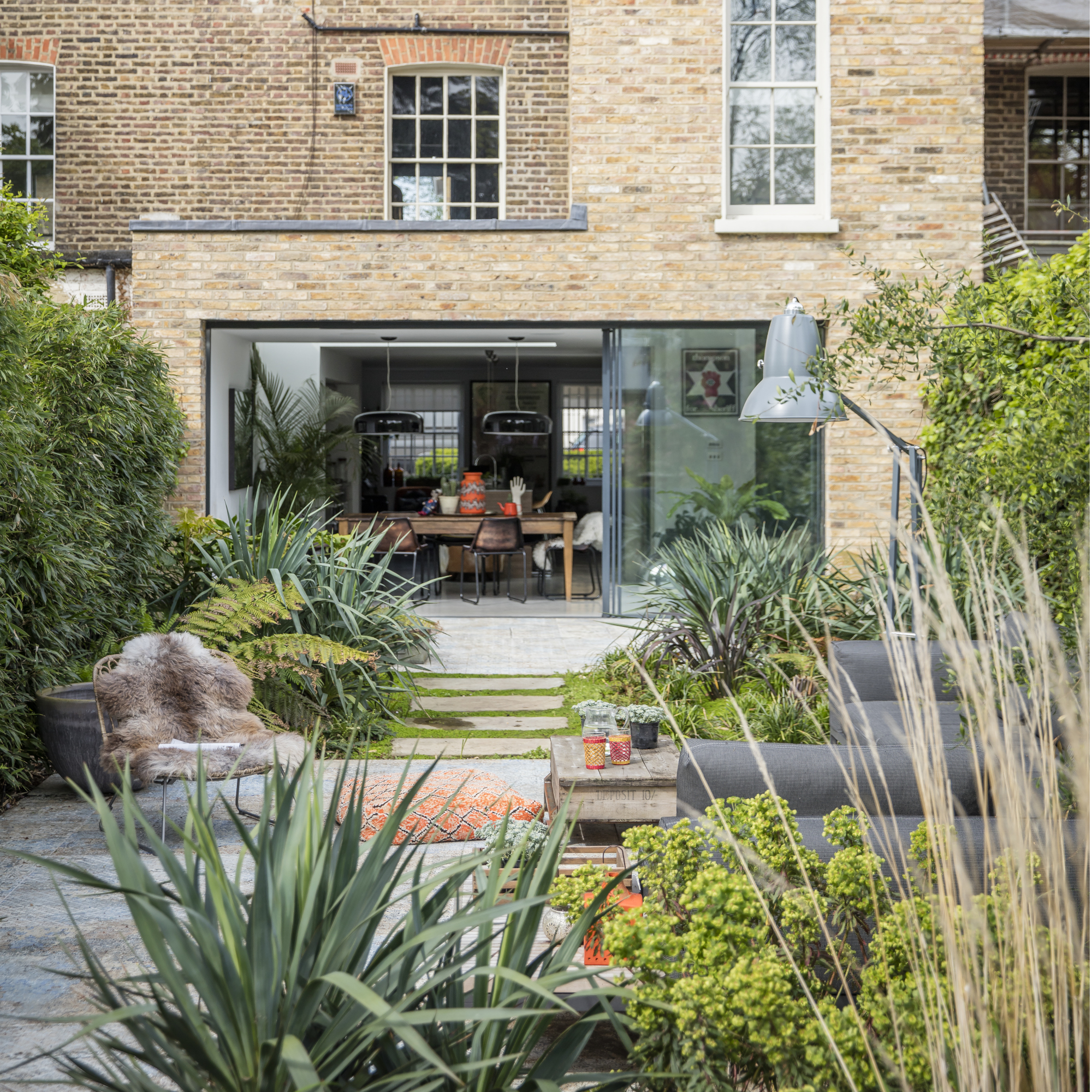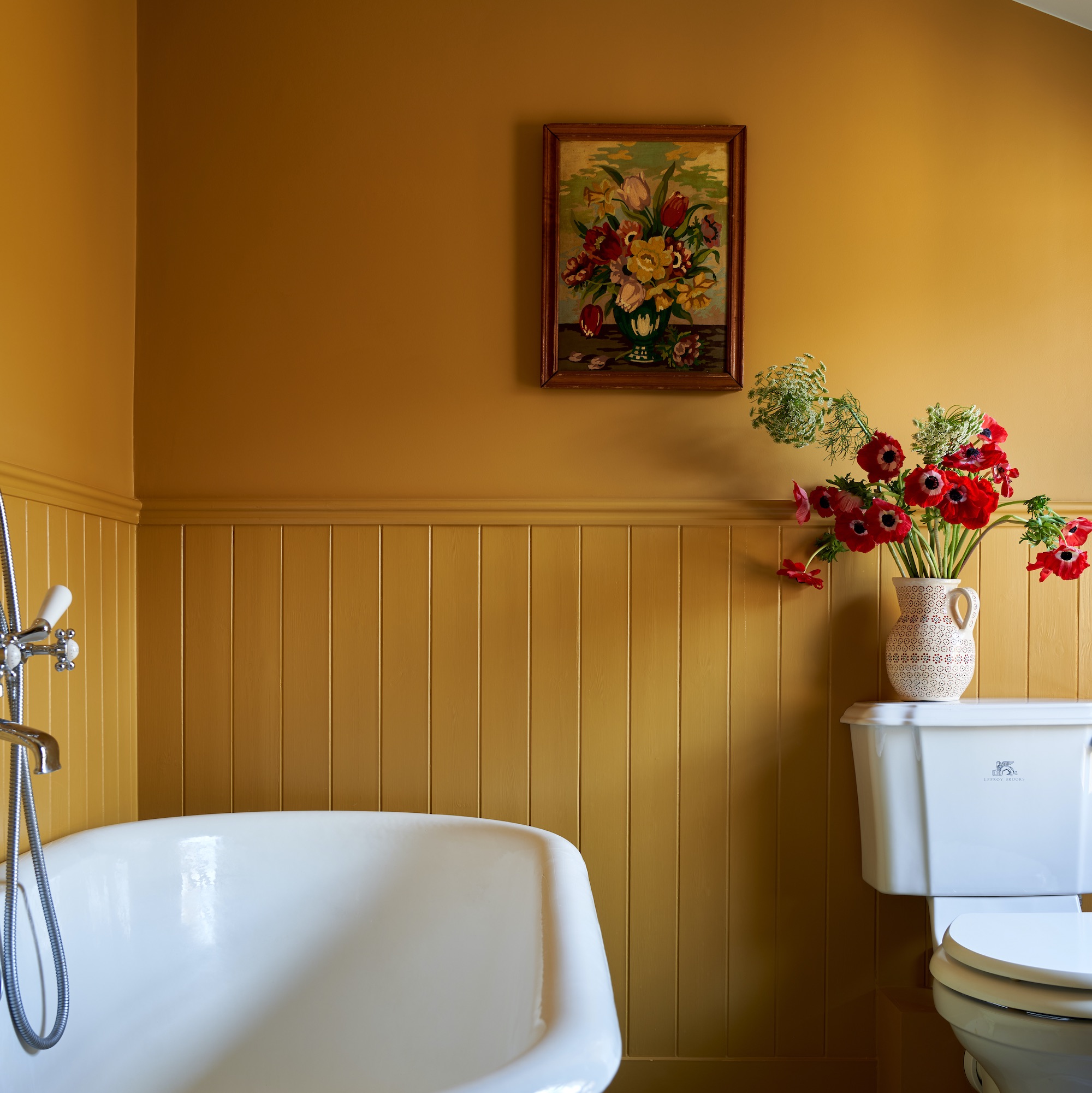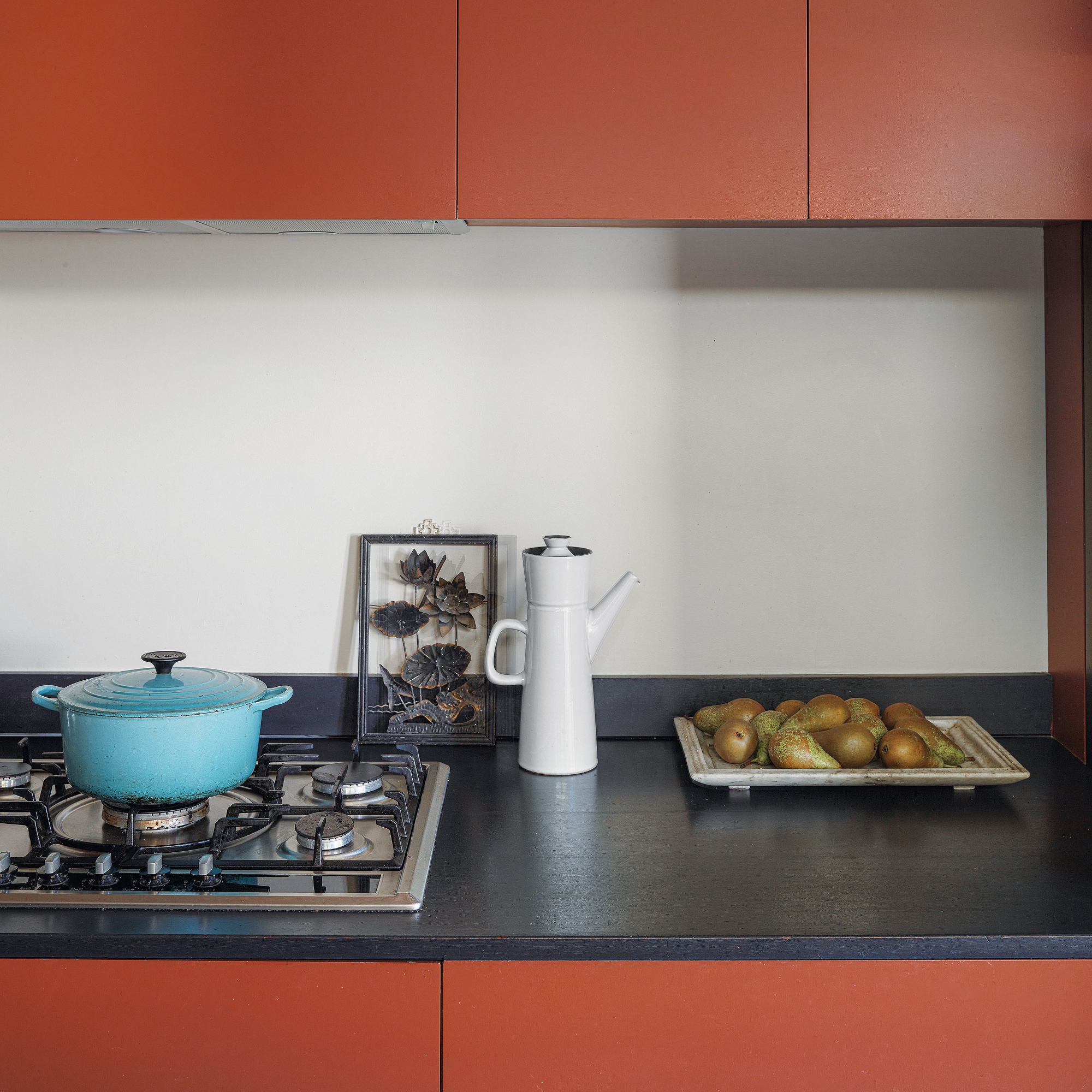Should I kill ants in my garden? What to stop and think about before declaring war on these pesky insects
The experts share the advantages and disadvantages of sharing your outdoor space with ants


As we start to spend more time outdoors in our gardens during the warmer months of the year, you may have spotted ants scurrying about, which can be a bit of a nuisance.
While there are a number of ways to get rid of ants inside your home, you might have to change tactics outdoors. And a lot of that has to do with the fact that you tend to only see the odd ant indoors, particularly if you’ve left food out or the weather has forced them inside. But outside there can be hundreds of ants swarming around.

‘Ants tend to build their nests near human habitats where food is easily accessible and typically emerge during the warmer months between May and October, with July being a peak time for their appearance,’ admits Hudson Lambert, Pest Expert at NOPE! So, it’s no surprise that you might have noticed more ants in your garden or outdoor space this month.
Plus, ‘ants are typically more active in higher temperatures and ant colonies use sunlight to navigate, so summer is their best friend,’ John Stewart, a Technical Team Member at Pelsis, clarifies.
But should you be killing ants in your garden? Or are their alternatives? Well, here’s everything you need to know about dealing with the pesky pests this summer.
Should I kill ants in my garden?
This can all depend on whether or not they’re doing any damage or causing significant issues in your garden. For example, ‘if they dig enough sand out from under your patio slabs or paved driveway, it can cause problems,’ says Steven Walley, Patio and Paving Expert from London Stone.
‘By tunnelling through the sand under and between your paving, they can damage the integrity of the joints, causing paver sinkage. This can not only make the floor unlevelled but it can also cause bigger gaps to appear between paving slabs, leading to weeds and moss to grow.’
Another reason why you might want to kill ants in your garden is ‘if they start farming aphids (tiny sap-sucking insects) for their honeydew,’ suggests Josh Clarke, Manager at Clear It Waste. ‘Aphids can damage your plants, and having a large ant population can exacerbate this issue. But generally, the benefits they provide often outweigh the drawbacks.'

Ants play a pretty important role in the ecosystem that is your garden. ‘For starters, they're excellent at aerating the soil, which helps plant roots get oxygen and water more efficiently,’ Josh adds. ‘They also help with pest control by preying on other insects and decomposing organic matter, which enriches the soil with nutrients.’
Most of the experts agree that they don’t typically recommend killing any kind of garden wildlife, especially ones such as ants who on the whole don’t cause much trouble. So on this occasion overall we'd recommend opting for ant deterrent methods around garden seating areas and your house instead of killing them.
FAQs
What happens when you destroy an ant hill?
Even though ant hills can be easy to spot and in turn, hard to ignore once you’ve seen them, there’s a bit of a misconception that destroying an ant hill will eradicate ants from your garden, the experts say. Often all it does is remove one entrance from the ant colony that lies beneath and as a result, the ants will tend to burrow out and create a new hill somewhere else in your garden.
‘It can even lead to a temporary increase in ant activity as they scramble to rebuild,’ Josh warns.
What do ants hate the most?
‘Like many insects, ants usually hate very strong scents and will be put off if any of these are around your garden,’ suggests James Ewens, Commercial Director of Alexander Francis. ‘Think lemon juice, peppermint, tea tree and cayenne pepper. Mix the scent of your choice into a solution and spray around areas where you’ve noticed ants to try and keep them at bay.’
Ants also ‘really hate anything that feels gritty underfoot, including coffee beans and salt,’ Steven affirms. ‘This works to create a ‘barrier’ for the ants which they will avoid,’ with it also being a natural way of deterring them from certain areas, such as seating or dining areas in your garden. However, these won’t be permanent solutions when it comes to getting rid of ants for good.

What are the best natural ways to get rid of ants permanently?
While there are a couple of different ways to get rid of ants from your garden for good, you do need to consider how much damage the insects are actually doing to your garden first, as certain methods for removing them can cause problems in their own right.
Firstly, you can try pouring a solution of two parts water and one part vinegar into and around the ant nest. ‘The reason for this is that the strong scent of vinegar hugely disrupts how the ants operate, as they use scent to move around your garden and identify routes to food,’ James explains. ‘This disruption can prompt the ants to leave and set up shop elsewhere, though this isn’t guaranteed.’ But because vinegar can kill parts of plants that it comes into contact with, you do need to be precise when it comes to how you use it to stop it from doing any damage.
‘You can also introduce nematodes into the area that will infect the ants, pouring them into the soil where the ants usually burrow through,’ James admits.
Get the Ideal Home Newsletter
Sign up to our newsletter for style and decor inspiration, house makeovers, project advice and more.

Ellis Cochrane has been a Freelance Contributor for Ideal Home since 2023. Ellis has been writing about homes, interiors and gardens for four years now, with her also contributing to House Beautiful, Country Living, Expert Reviews, Real Homes and Stylist.
-
 7 best colours to paint a windowless bathroom that will transform the mood of a dark wash space
7 best colours to paint a windowless bathroom that will transform the mood of a dark wash spaceA bathroom without a view needn’t sink your plans for a warm and welcoming retreat
By Linda Clayton
-
 I’ve found a stunning £40 buy that rivals Le Creuset at Wilko - this casserole dish is a dead ringer for one of the most summery colourways
I’ve found a stunning £40 buy that rivals Le Creuset at Wilko - this casserole dish is a dead ringer for one of the most summery colourwaysYou just can't beat finding a great Le Creuset alternative
By Kezia Reynolds
-
 Should an air fryer be on display in a kitchen or hidden away? This is why I always keep my small appliances on the worktop
Should an air fryer be on display in a kitchen or hidden away? This is why I always keep my small appliances on the worktopAre you on team display or neatly hidden away? Share your opinion in the comments
By Rebecca Knight